Safe Haven II (Maybe)
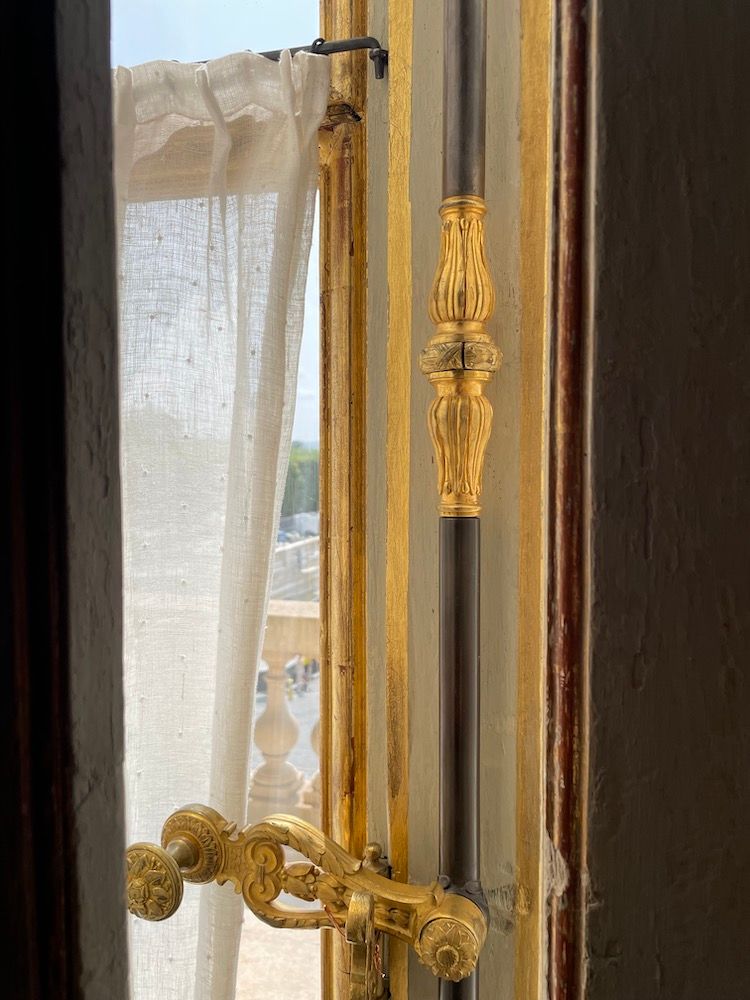
Friday, 30 June
No sooner had my friend Trevor, who was staying chez nous in Paris last week with his husband Dana, said: “It’s not crowded,” than I was on my bike and pedalling across the Seine to the recently renovated Hôtel de la Marine on the place de la Concorde.
I’d spent the morning up in my office trying to concentrate despite the hooting car horns and whining sirens disturbing the peace through the open window and the previous afternoon battling the noisy, nervy, hot city at ground level on two wheels.
As many of you know, my gripes about the state of Paris are not new. A while ago, I tried to improve my attitude with positive thinking: the works will not go on forever and comparatively, Paris still rates high on the beauty scale; at least I'm not living under Baron Haussmann when half the city was razed, nor are there bombs raining down on us, as they are in Ukraine. When that reasoning didn't work, I tried to look at it through the eyes of our recent visitors. From Trevor and Dana, to my sister- and brother-in-law Julia and Larry, to our Italian friends Lucio and Donatella (Venice and Rome!), all praised the city's magnificence.
But this week no amount of mental gymnastics was doing the trick. This video, Paris saccagé, by singer-songwriter Pierre Perret best expresses why. You don't need to understand the words to get the picture.
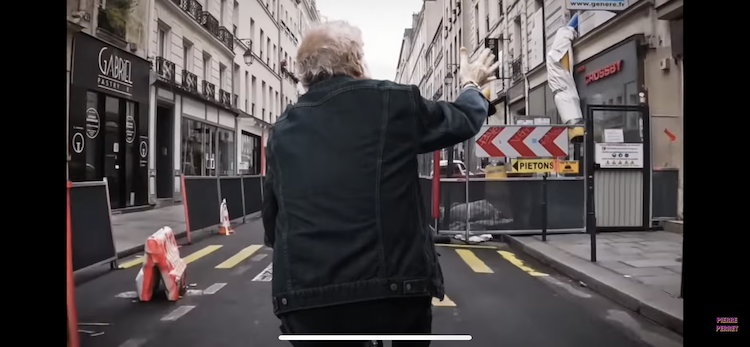
Take away the heaps of rubbish (it was filmed during the collectors' strike in March-April) and maybe some of the rats but add the hordes of tourists who have returned the past weeks and this is what it was like on my Wednesday bike tour.
I hoped that if the museum was uncrowded, it might also be quiet. Maybe even cool. Another safe haven, like the Fondation Custodia I took refuge in last October.
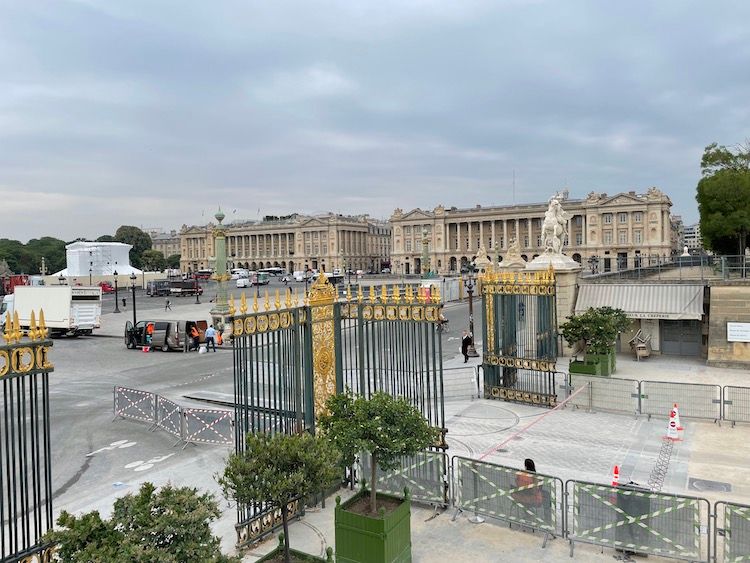
Construction of the building and its twin on the north side of the place de la Concorde, then place Louis XV, was finished in 1767. Originally called the Hôtel du Garde-Meuble de la Couronne, it managed the monarchy’s decorative art and furniture. Interestingly, the valuable pieces were not considered property of the King but of France herself and whatever was in storage at the time could be visited by the public for a few hours once a month.
Sadly for the monarchy, that cracked-open door policy was not enough to pacify the people. Munitions were also stocked there, and on the eve of the Revolution, angry citizens raided the building and stole various arms, including the cannons that fired the first shots at the Bastille the next day.
After the Revolution, the hôtel became the Ministry of the Navy and remained so until 2015 when the sailors moved to the periphery of Paris. A vast renovation ensued to restore the rooms to their royal glory. I’d been meaning to visit since it opened to the public (every day!) in the middle of Covid.
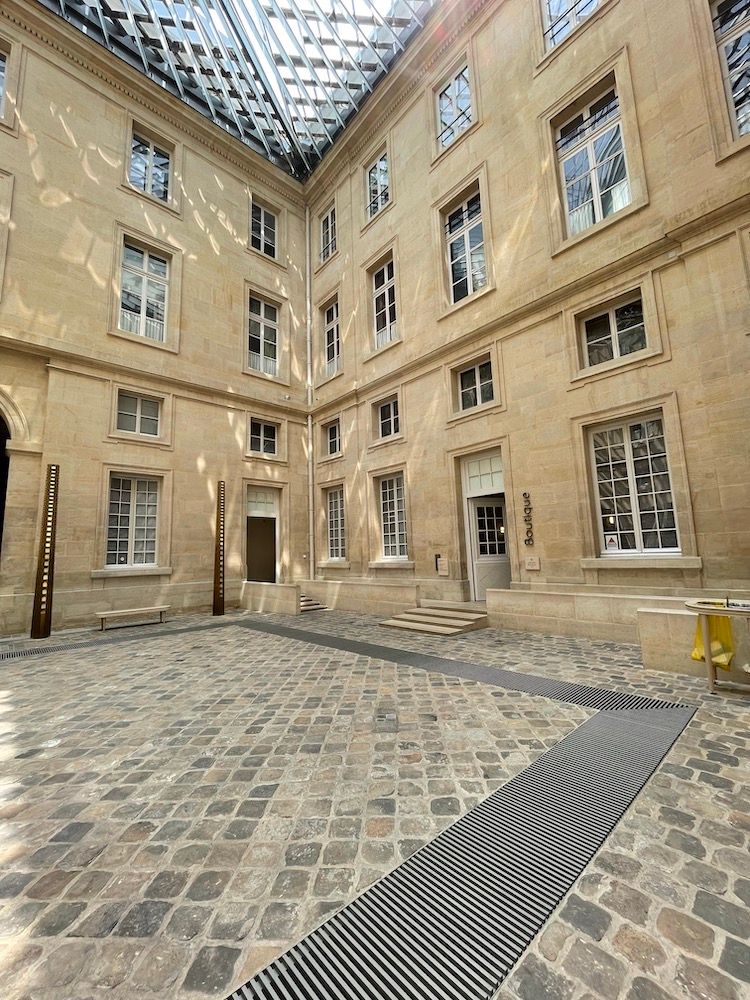
No sooner through the passage cocher and into the courtyard than the frenzied outside world fell away.
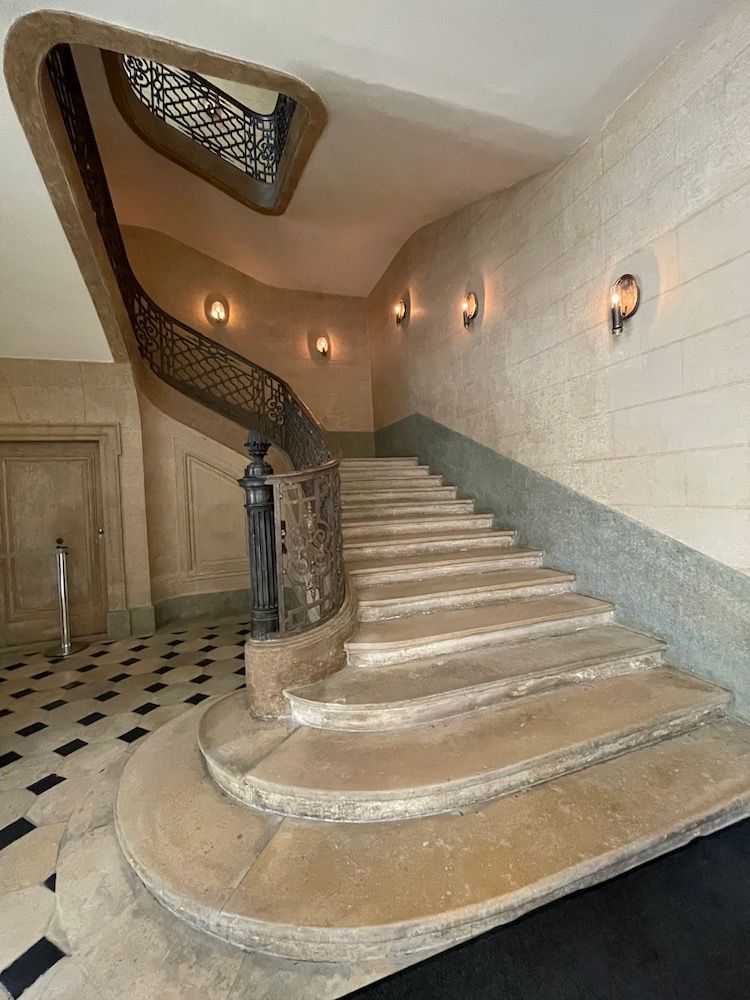
A swooping staircase, led me to the apartments of the successive intendants, Pierre-Élisabeth de Fontanieu and Marc-Antoine Thierry de Ville-d'Avray.
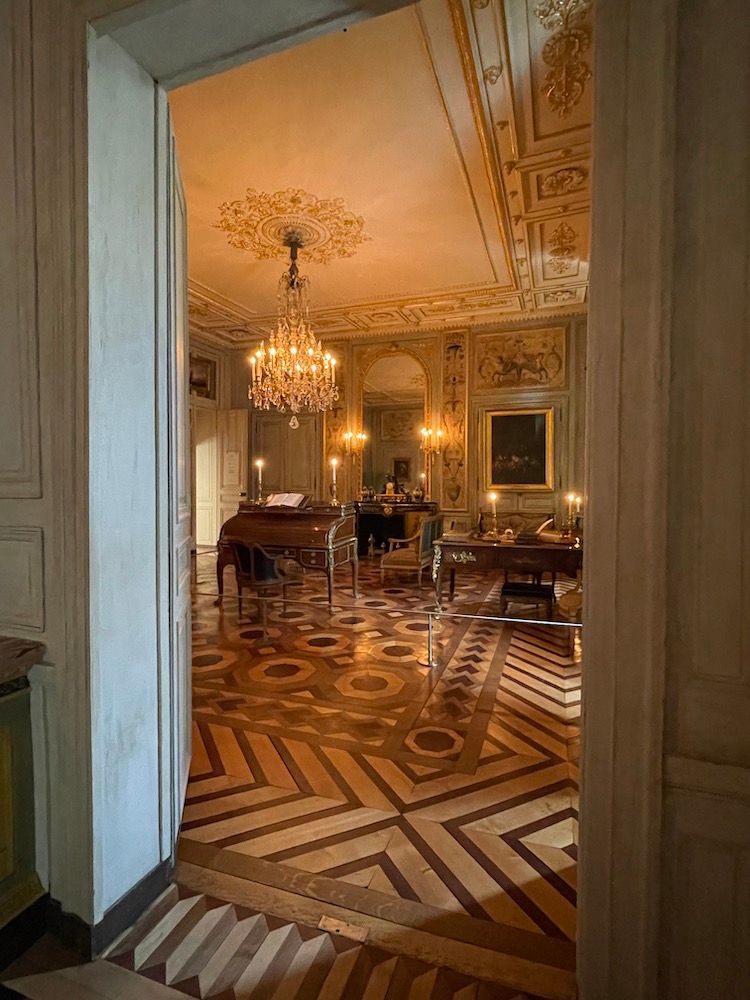
Closed wooden shutters and soft lighting drew me into the time-warped cocoon, while state-of-the-art headphones provided an aurally virtual ancien régime ambiance, complete with the sound of footsteps on the parquet and clinking glasses.
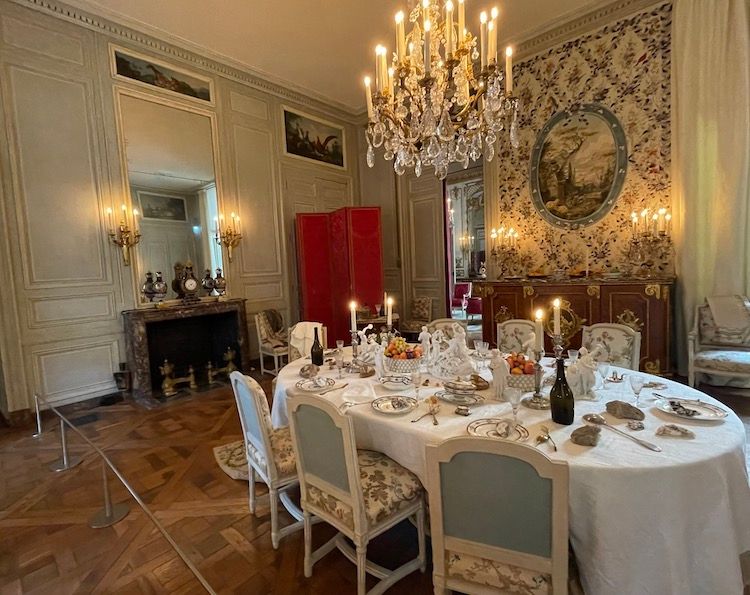
In some of the rooms where the shutters were open, the gold and glass dazzled.
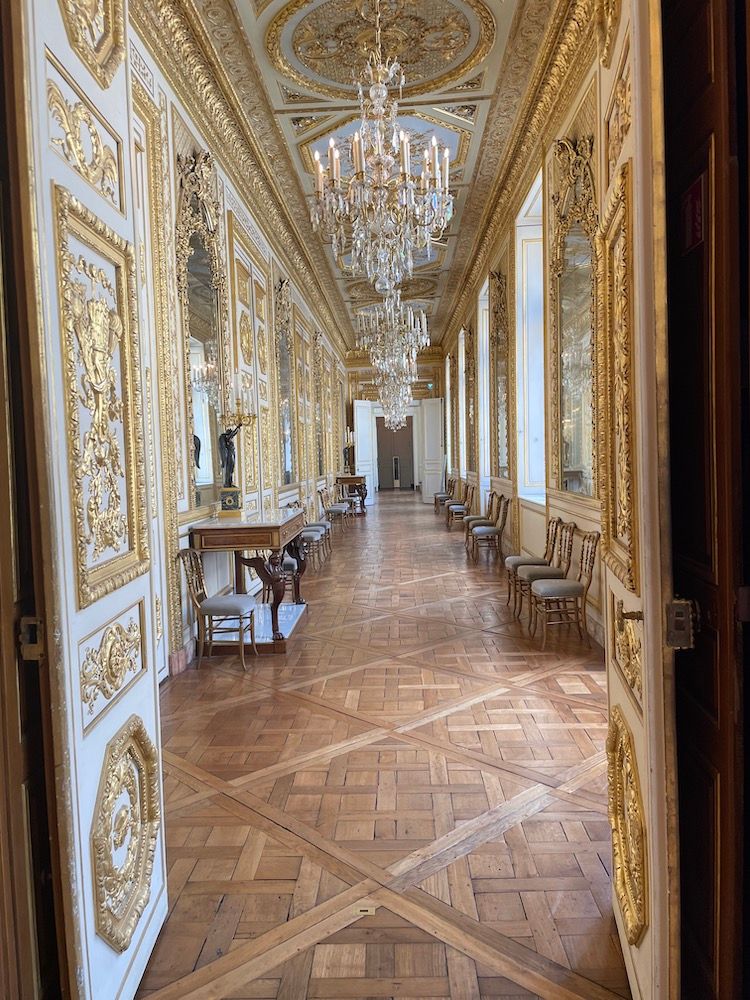
A balcony provided a lofty view well above the fray...
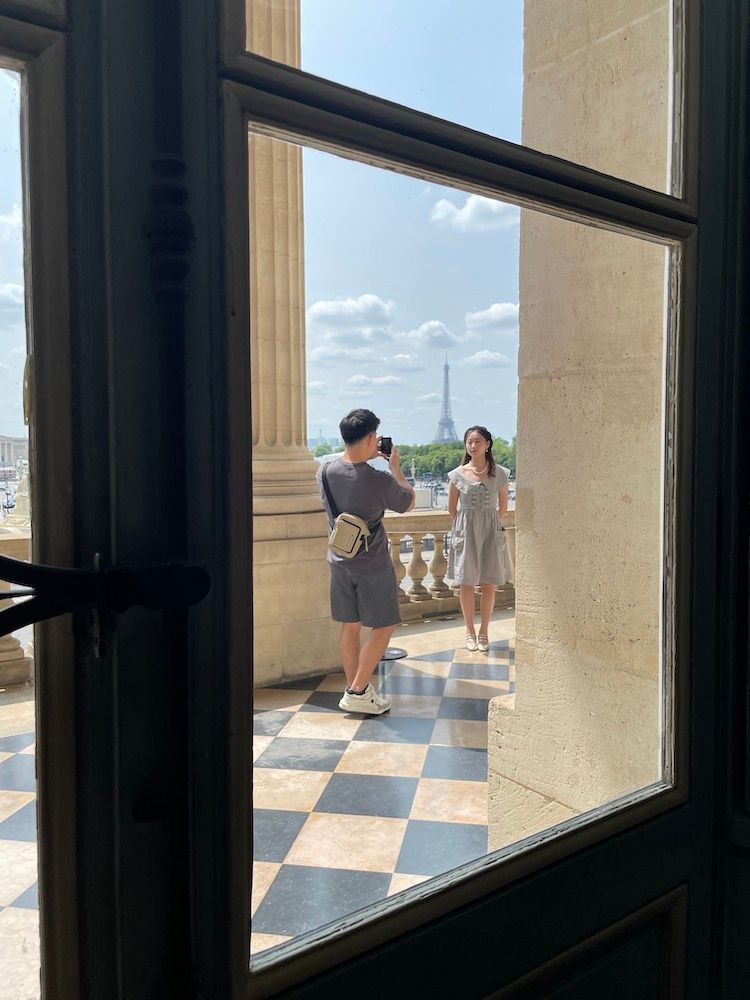
...of the busy city below.
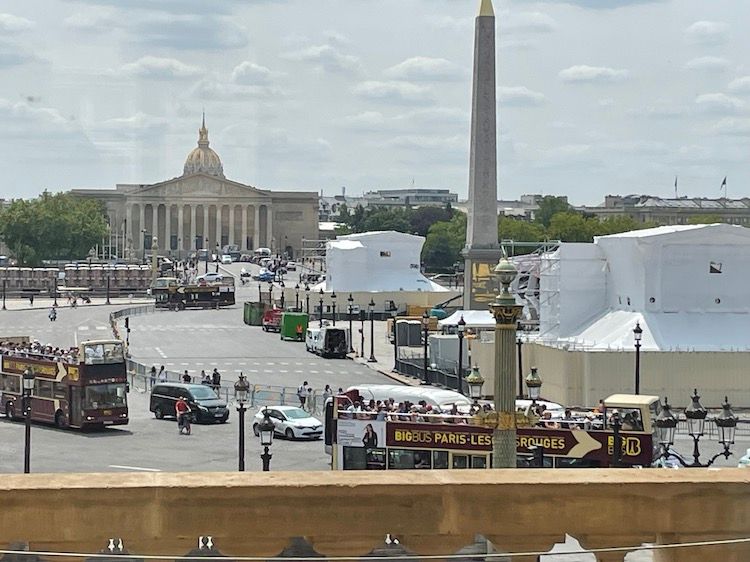
The gilded, ornate beauty of the kings Louis XIV - XVI may not be to my taste, but I admired the craftsmanship and sense of style. The décor appears to reflect a flourishing, robust society, one in which the people furnishing the rooms believed in their future.
Yet the Hôtel du Garde-Meuble de la Couronne only had two administrators, the second taking over from the first and lavishly decorating his living quarters in 1785, a mere four years before the Revolution upended the country.
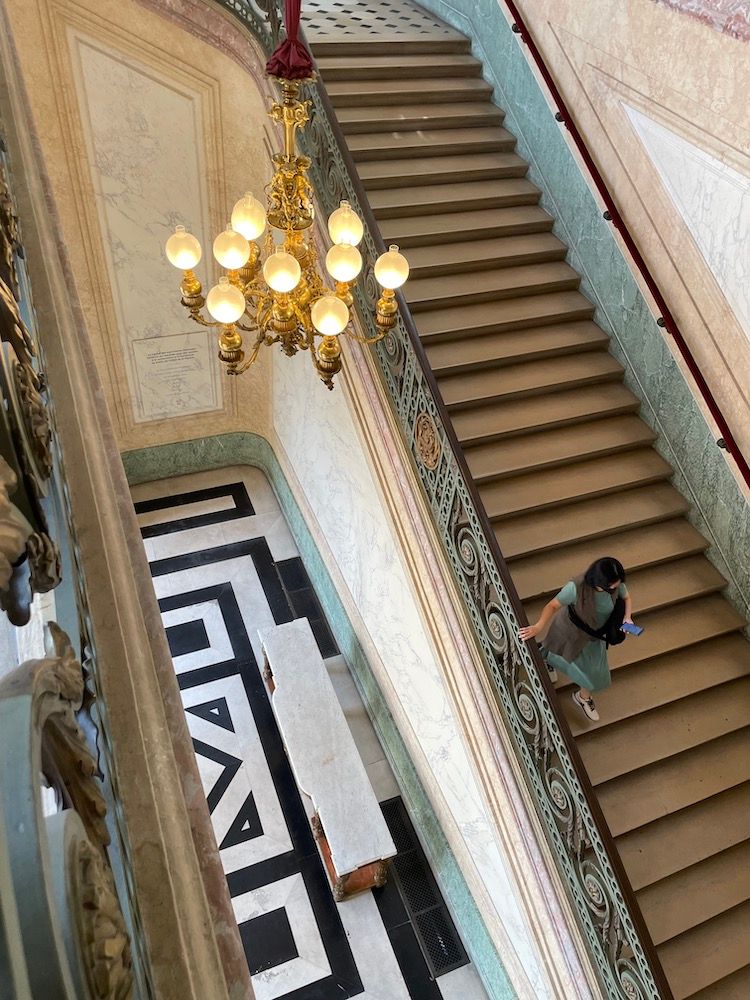
Tuesday, the day before I visited the sumptuous Hôtel de la Marine, a police officer shot and killed Nahel, a 17-year old boy of Algerian descent fleeing a control for a traffic violation on the outskirts of Paris. As I write from my aerie office in the VII arrondissement - where it's now quiet - the suburbs and cities around France are on fire in protest.

Havens may not be as safe as they seem.
_____________
You can visit my website here and follow me on Instagram here